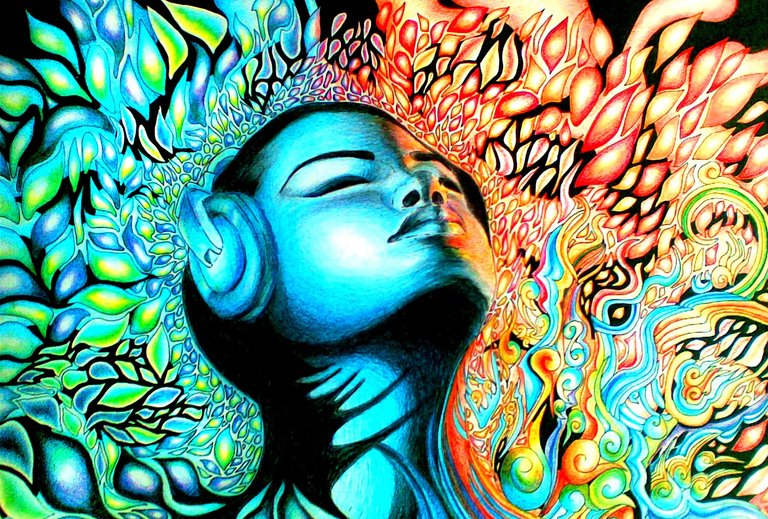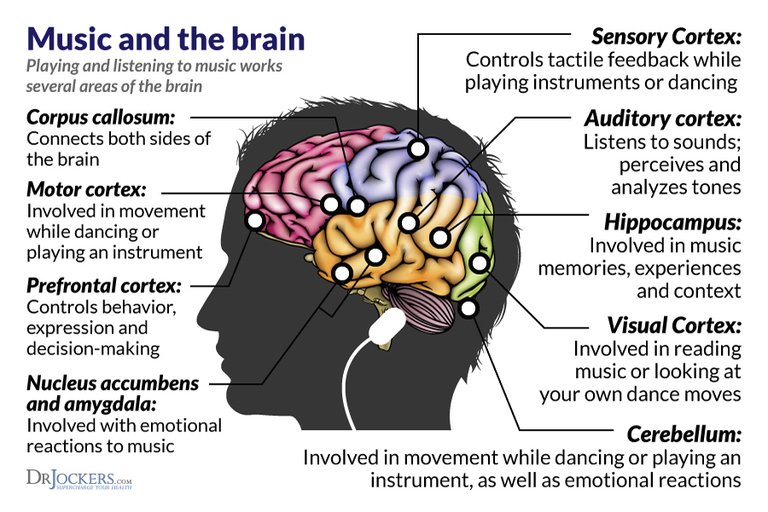Why does our brain respond so well to music therapy?

One of the most famous psychological tests is the Rorschach test, in which the viewer is exposed to abstract ink stains
that receive many different interpretations from different people. The essence of the idea is that by interpreting the patient to an ambiguous stimulus, the therapist can receive a reflection of the patient's state of mind, patterns of thinking, and the range of associations. Tests of this kind are referred to as tests in the system, and they serve as therapists for diagnosis and familiarity with their patients. The assumption underlying them is that we do not see reality as it is - but as we are. The stains are drawn from the perspective of seeing the world at that given moment.
Like the Rorschach test, many other tools based on the same principle were developed - from art therapy to animal work to puppetry. In each option, the patient can "throw" his world on the other object in the room. One of the most interesting instrumental tools is music. It seems that most of us are "taking care of ourselves" through music - we calm ourselves with it, lift our spirits or evoke sadness - but have you tried to learn about yourself through music? Or about others? Let's start from the scientific basis that will give us some background on how it really works. In an article published in TheScientist, Elizabeth Stegmuller, a music therapist and brain researcher at the University of Iowa, explains that one very important feature of the human brain is the core of the mechanism of music therapy. This is called neuroplasticity.

According to her, this is "the ability of the brain to change during a person's life as a response to sensory input, motor action, reward or awareness." Stegmuller explains that the understanding that behavioral changes are associated with anatomical changes of the brain was discovered at the beginning of the 19th century. Today it is widely accepted that the Palestinians - that is, flexibility - occur on several levels: from changes in a single synapse to whole regions of the cortex. In other words, if for a long enough period we are surrounded by a certain smell or change the way we go consistently, it may be reflected in anatomical changes in our brain. From the micro level - change in response or communication between one neuron and another - to the macro level - entire networks of neurons that change their activity patterns.
Under the cortex
"The goal of therapy by music is to stimulate behavioral changes in the patient, which will be supported by [anatomical] changes in the brain," Stegmüller continues, and connects us with the treatment method and its purpose with the plastic apparatus. Such as the egg and chicken puzzle - external changes will cause internal changes and internal changes will cause external changes and so on. The key player in the story is a neurotransmitter called dopamine. A neurotransmitter is actually a chemical that is a message transmitted from one neuron to another. Like the fun of the familiar children's game "Qua Qua de la Uma". Dopamine is known to be an active neurotransmitter in neuroplastic processes. According to Stegmuller, it was found that, like certain foods and drugs, enjoyable music stimulates the dopamine-releasing mechanism. "Thus," she writes, "by coupling music with desirable behaviors unrelated to music, therapists have found their way into the reward path of the brain." In other words, we practice a desirable behavior or pattern of thinking that we want to adjust while music, which is responsible for encouraging dopamine production, does what it knows how to do well, and we get fertile ground for structural changes in the brain to help establish or establish the desired behavior or thinking.

Congratulations @ya28! You received a personal award!
You can view your badges on your Steem Board and compare to others on the Steem Ranking
Vote for @Steemitboard as a witness to get one more award and increased upvotes!